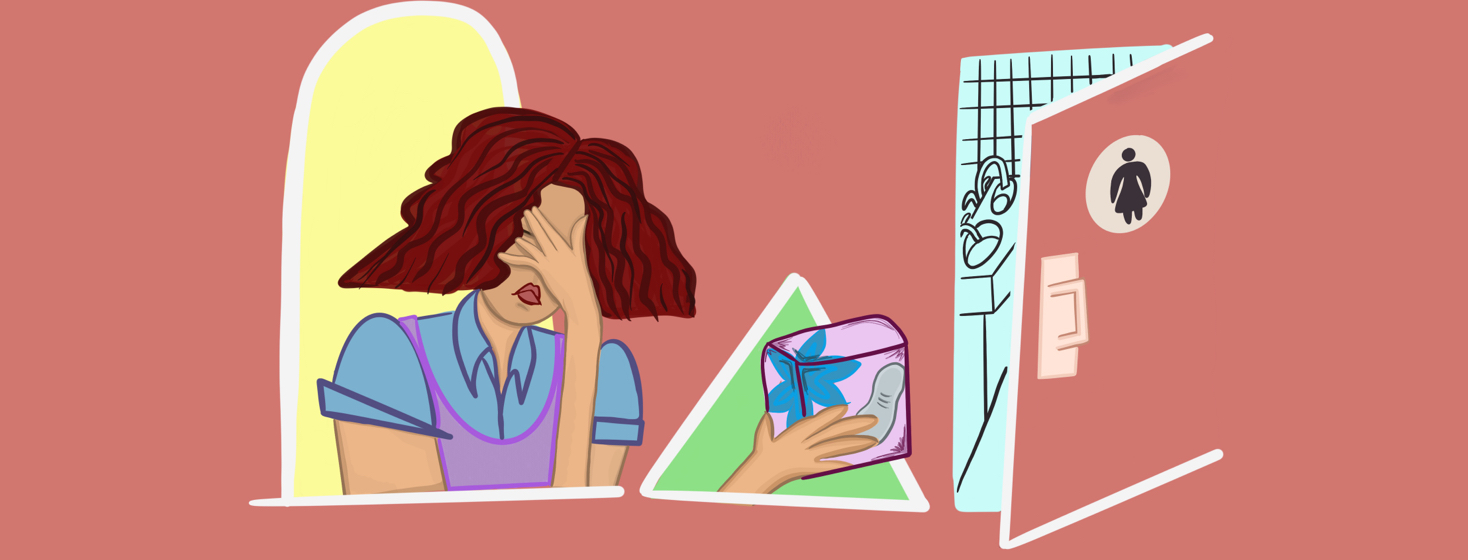Coping With Urinary Incontinence
There is usually a time in life when having CF feels embarrassing. It may be when you cough in public like you smoke a couple packs a day or perhaps wearing your oxygen mask out for the first time filled your cheeks with that awkward, warm redness.
And, well, there is nothing like a touch of urinary incontinence to make you feel humiliated. Many years ago, I looked on in sheer horror when my physical therapy casually asked if I leak while coughing. Little did she know I had given up my cute Brazilian pants for full pants and a TENA pad a long while ago.
What is urinary incontinence?
There are many causes of urinary incontinence but in cystic fibrosis it tends to fall under stress incontinence – this is when you unintentionally leak urine when your bladder is put under sudden extra pressure such as:1
- Coughing
- Sneezing
- Laughing
- Exercising
- Heavy lifting
- Lung function tests
- During physical therapy
Urge incontinence can also be an issue in CF especially when on IVs, it can cause you to have sudden urges to pass urine. Some form of urinary incontinence has been experienced by 30-68% of women with cystic fibrosis, as documented in numerous studies over the last decade.2
Why does urinary incontinence happen?
Your pelvic floor muscles help control your bladder and bowels. All the stress of coughing can loosen pelvic floor muscles as well as overtighten them. Each coughing fit is an intense round of lower abdominal sit-ups. Just like weak pelvic floor muscles cause bladder issues, so do tense ones. Other signs you may have overtight muscles are incomplete bladder emptying, discomfort during sex, constipation and urge incontinence.1,2
So, more Kegels?
You'd think so, right. But, not without a professional. Think of this as bodybuilding - well, vagina building - but you get the picture. You are going to need a personal trainer. When I waved my white, wet flag to surrender I was referred to a pelvic floor specialist who was able to give me an internal examination to assess muscle strength and endurance.
Then, she drafted up a kegel exercise plan tailored specifically to the strength of my muscles but, most importantly – she taught me how to relax them. Relaxing your pelvic floor is just as important as strengthening it. If you aren't relaxing properly, your Kegels will be fruitless.
5 tips for coping with urinary incontinence
- See a women's pelvic floor specialist!
- Have an internal examination to understand exactly where your pelvic floor is at
- Practice relaxing and breathing into the pelvic floor muscles to really “let them go” - try this in a yogi squat position for added benefits
- Learn the “knack” – a useful exercise to help you fight urge incontinence
- Pursue love and appreciation for your body regardless of having urinary incontinence
It's one of those awfully annoying things we deal with as CF women, but working with a professional to learn exactly what your pelvic floor needs will help you be the best version of yourself. It's not as embarrassing or as uncommon as you think. Put down the incontinence pads and pick up the phone, your cute pants are waiting for you!

Join the conversation